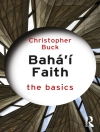Illustrates how the American Conservative Movement in Judaism can continue to prosper amidst ideological and institutional challenges.
Viewing the Conservative Movement at a turning point, this book analyzes the problems facing the religious movement with the largest synagogue membership in the American Jewish community and outlines a plan of action for the future. Elazar and Geffen suggest: clarifying ideology, mission, and purpose, finding the right balance between traditionalists and advocates of change, unifying movement institutions in a cooperative effort, staunching the decline of membership to the left, recapturing the loyalty of lapsed adherents, closing the gap in observance between the laity and the standard bearers of the movement, developing the Movement in Israel and world-wide, and strengthening ties with Jewish federations and other Jewish communal bodies. The authors propose that the Conservative Movement’s remedying of these problems will benefit not just American, but all world Jewry.
Содержание
Acknowledgments
Introduction: Conservative Judaism: Past and Future
The Conservative Achievement
Confronting Difficult Issues
Methodology of This Study
Looking Toward the Future
Part I: The State of the Movement
1. A History of Ambivalence
A Reluctant Separation
The Movement As a Party
From Party to Camp?
2. Institutions
The Changing Position of the Seminary
The Congregational Heart of the Movement
The Variety of Congregational Models
A Note on Youth Movements
New Institutions Emerge
The Ramah Camps
The Havurot
The Solomon Schechter Schools
3. Ideology and Theology
God, Torah, and Israel
Shifts and Stages
Benchmarks and Boundaries
4. Style
Sephardim and Litvaks
Elite and Mass
Rabbinical Preeminence
Synagogism
Religious Observance
5. Demographics
Concentric Circles of Jewishness
Decline in the Fourth Generation
Orthodoxy Resurgent
The Changing Family
A Note on Regionalism in the Conservative Movement
6. Leadership
In the Movement
In the Congregations
In the Jewish World
Voluntary Leadership in the Existing Institutional Framework
7. The World Movement
The New Context of World Jewry
The Scope of the World Conservative/Masorti Movement
The Movement in Israel
A Missed Direction
A New Partnership
8. What the Movement’s Leadership Seeks
Raising the Halakhic Profile
Enhancing Conservative Intellectual Life
Addressing the Spiritual Needs of Conservative Jews
The Communal Approach
The Zionist Approach
Part II: Next Steps
9. Ideology, Halakhah, and a Broadened Base
The Need for Ideological Clarification
Fostering a More Serious Halakhic Movement
Broadening the Base
Confronting the Demographic Challenge
Building a Real World Movement
Building a Masorti Movement in Israel
Is Conservative Judaism Best Served through a Single Movement or a Multi-Movement Community?
Links to the Jewish People
10. Internal Unity
From Congregationalism to Community
Reducing the Gap between the Circles
Integrating the Movement’s Parts into a Whole
Broadening the Leadership
The Role of the Jewish Theological Seminary
Strengthening Rabbinic Leadership
Learning from History: A Summary and Final Word
Glossary
Notes
Index
Об авторе
Daniel J. Elazar was the President of the Jerusalem Center for Public Affairs and Professor Emeritus of Intergovernmental Relations at Bar-Ilan University. He was the author and editor of more than seventy books, including, with coauthor Harold M. Waller, the National Jewish Book Award Winner Maintaining Consensus: The Canadian Jewish Polity in the Postwar World. Rela Mintz Geffen is Professor of Sociology at Gratz College. She is the editor of several books including Celebration and Renewal: Rites of Passage in Judaism, and with Marsha Bryan Edelman, Freedom and Responsibility: Exploring the Dilemmas of Jewish Continuity.












